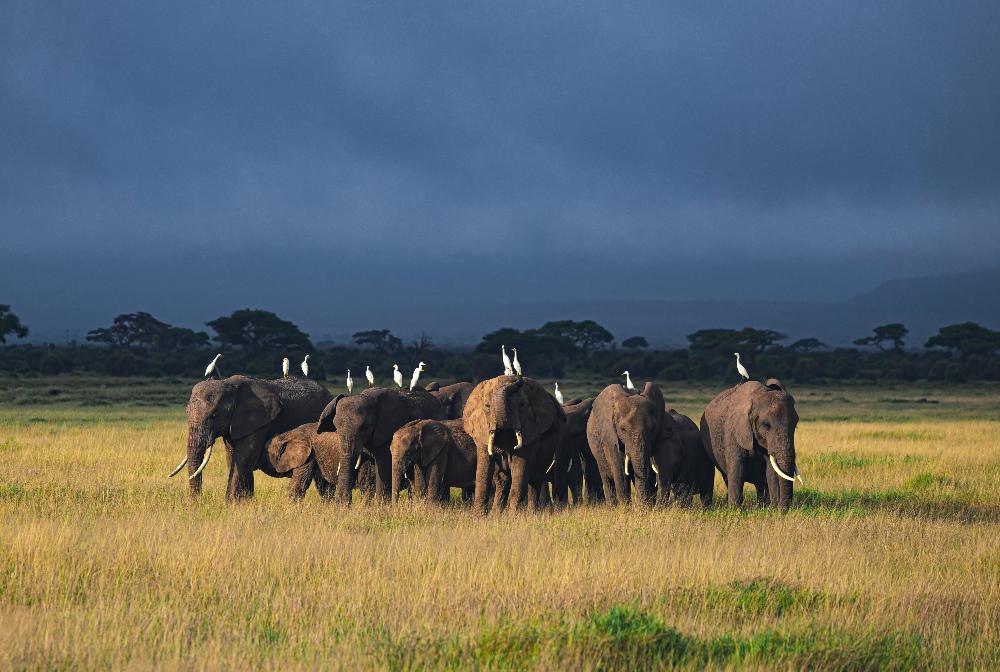SFS KENYA: ENDANGERED SPECIES CONSERVATION
(SEMESTER)

PROGRAM DETAILS
Terms | Fall, Spring
Credits | 18 semester-hour credits
Prerequisites | One semester of college-level ecology, biology, or environmental studies/science | 2.7 GPA | 18 years of age
Application Deadline: Fall: May 1st. Spring: November 1st. Early applications encouraged!
OVERVIEW
Study diverse wildlife and engage in hands-on conservation research in the world-famous national parks and stunning landscapes of Kenya and Rwanda. In Kenya, the survival of several endangered, threatened, and vulnerable species hinges on many factors, including the availability of critical resources, climate change, and land use adjustments. Research the root causes of these changes and how different conservation strategies can benefit both humans and wildlife.
In Rwanda, you’ll compare national conservation strategies and trek into the rainforest to observe mountain gorillas in their natural habitat. If an alternative is needed, students will travel to Tanzania’s Gombe Stream Research Center, where Jane Goodall’s groundbreaking research reshaped the field of primatology. At Gombe, students will observe one of the world’s most famous chimpanzee populations and examine the complexities of habitat conservation and behavioral ecology.
PROGRAM HIGHLIGHTS
→ On a multi-day camping trip, explore Amboseli National Park – widely regarded as the best place in the world to observe free-ranging elephants.
→ Track mountain gorillas with guest lecturers from the Dian Fossey Gorilla Fund – or, at Gombe, study chimpanzees in the very forests where Goodall’s discoveries reshaped our understanding of animal intelligence and social structures.
→ Embark on a two-week expedition to the nearby SFS Center in Tanzania. Students will stay at our Moyo Hill Camp (MHC) site, which is surrounded by the famous Serengeti, Ngorongoro Conservation Area, Lake Manyara, Tarangire, Arusha, and Mt. Kilimanjaro parks.
→ Visit multiple conservancies and wildlife orphanages, learning how experts care for and use technology to steward lion, white and black rhinoceros, elephant, zebra and other wildlife populations.
→ Spend the day with a local Maasai family and learn about their culture, history, daily life, and relationship with nature.
→ Conduct a comprehensive field research project: Develop a research question, collect and analyze data, write a paper, and present your findings.
LOCATION
Our students live and study at the Center for Endangered Species Conservation, known locally as Kilimanjaro Biodiversity Camp. The center lies in the heart of Kenya’s Rift Valley, between three world-famous national parks.
The snow-capped peak of Mt. Kilimanjaro towers over miles of savanna, replete with diverse wildlife. Our sprawling, grassy campus, just down the road from the small town of Kimana, includes traditional thatched bandas (cabins) and a central chumba (main building).
RESEARCH THEMES
- Wildlife Management and Sanctuaries
- Climate Change Resilience
- Water Conservation
- Wildlife Ecology and Behavior
- Endangered Species
- National Parks Management
- Community Governance of Protected Areas
- Conservation Strategies
CORE SKILLS
- GIS
- Species Identification and Wildlife Census
- Basic Swahili Language
- Interview and Survey Methods
- Research Design and Implementation
- Data Collection and Analysis
- Research Presentation
______________________________________________
______________________________________________
CONNECT WITH SFS
![]()
![]()
